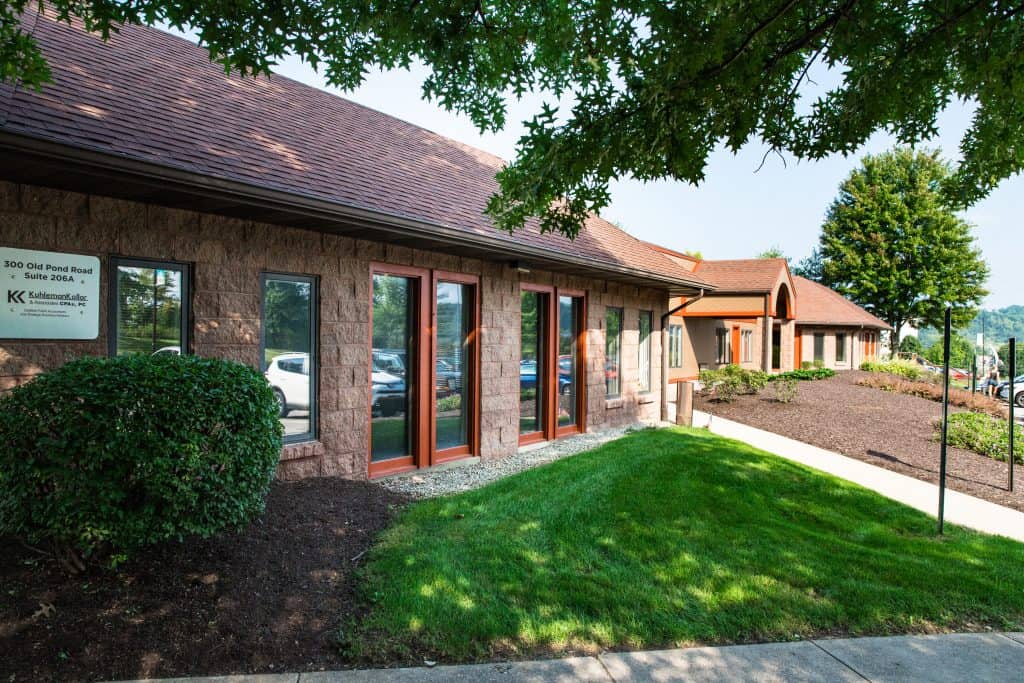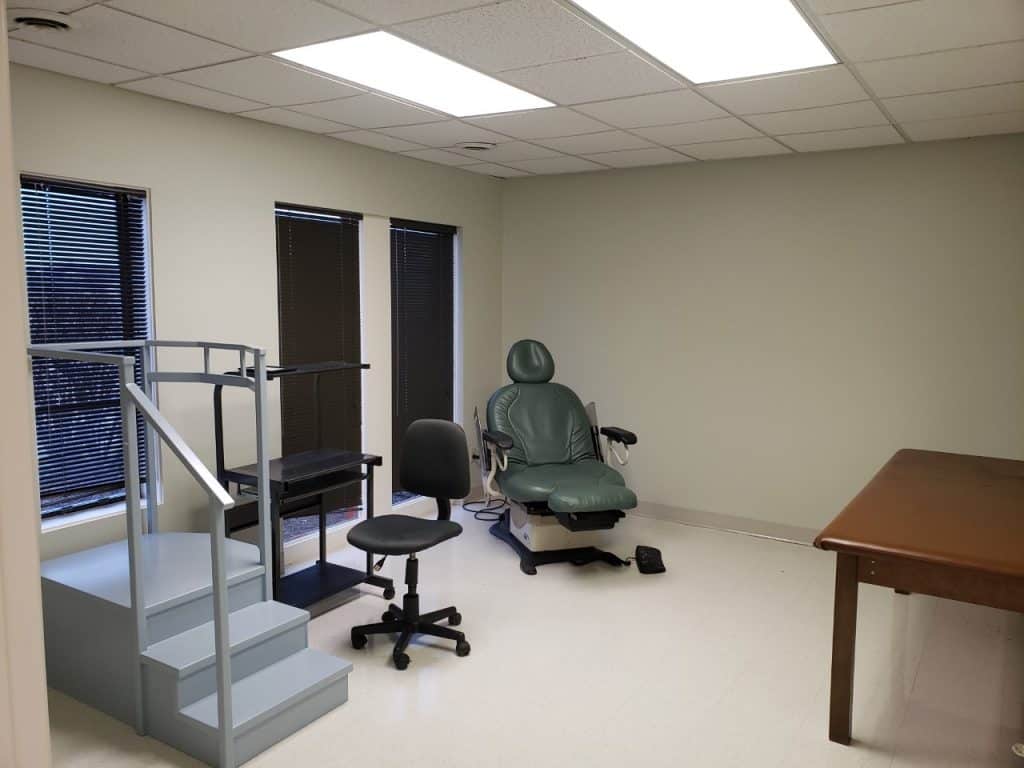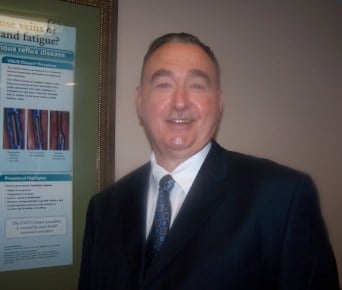Address: Abele Business Park, 800 Old Pond Rd Suite 702A, Bridgeville, PA 15017
Phone: 724-987-3220
Welcome to Advanced Vein Center, Pittsburgh South

SPIDER VEINS

VARICOSE VEINS

WHAT’S NEW
Our Advanced Vein Center is one of the best vein centers, Pittsburgh Area.
At the Advanced Vein Center, making your legs look and feel better is our only focus! Founded in 2006, our local family owned business has become one of the largest vein clinics in Pittsburgh and the surrounding area. We’re not a chain like our competition and we pride ourselves on giving our patients the one on one care and personal attention they deserve.
Call us today at (724) 987-3220 to schedule a consultation.
Most major medical insurance plans accepted.



Vein Services offered at this facility:

Dr. Timothy Kavic, MD is our medical director and lead surgeon. He has been the director of the vein clinic South Hills for many years. With over 40 years of experience as a general surgeon he’s performed literally thousands of vein procedures of all types. He sits on several local and national medical committees. He’s also a long time humanitarian.
BOARD CERTIFICATION: American Board of Surgery

Dr. Giraldo, MD, FAACS is a cosmetic surgeon and the other leading member of our surgical staff. He is a cosmetic surgeon with an extensive working knowledge of all types of vein procedures. He’s also a proud member of the prestigious Fellowship of the American Academy of Cosmetic Surgery (FAACS). He also sits on the American College of Phlebology (ACP), which deals exclusively with veins and other parts of the circulatory system.
BOARD CERTIFICATION: American Board of Surgery
Good news – most insurance plans cover this examination for symptomatic patients. Please call us at 724-987-3220 to set up an appointment.
How can someone prepare for a visit to a vein doctor?
To prepare for a visit to a vein doctor, consider the following steps:
- Medical History Documentation:
– Gather information about your medical history, including any pre-existing conditions, surgeries, medications, and family history of vein issues.
- Symptom Tracking:
– Document specific symptoms related to your veins, such as pain, swelling, or changes in skin color. Note when symptoms occur and any potential triggers.
- List of Medications:
– Prepare a list of all medications, including prescription and over-the-counter drugs, as well as any supplements you are taking. Include dosage information.
- Insurance Information:
– Bring your insurance card and any relevant documentation. Check with your insurance provider to understand coverage for vein-related evaluations and treatments.
Are there specific risk factors that may warrant a visit to a vein specialist?
Yes, several specific risk factors may warrant a visit to a vein specialist. If you experience any of the following, it is advisable to consult with a vein doctor:
- Family History:
– A family history of vein issues, such as varicose veins or deep vein thrombosis (DVT), may increase your risk.
- Prolonged Sitting or Standing:
– Occupations or activities that involve prolonged periods of sitting or standing may increase the risk of vein issues.
- Obesity:
– Being overweight or obese can put additional pressure on the veins, contributing to the development of varicose veins
What should I do if I experience any complications or side effects after the treatment?
If you experience any complications or side effects after vein treatment, it’s crucial to:
- Contact Your Healthcare Provider: Inform your healthcare provider immediately. They can provide guidance on managing your symptoms and determine if further treatment is needed.
- Follow Instructions: Follow any instructions provided by your healthcare provider for managing side effects or complications. This may include medication, rest, or specific care instructions.
- Monitor Symptoms: Keep a close eye on your symptoms and note any changes. If you experience severe or worsening symptoms, seek medical attention promptly.
- Avoid Certain Activities: Your healthcare provider may advise you to avoid certain activities or behaviors that could worsen your condition. Follow these recommendations closely.
- Keep Your Follow-Up Appointments: Attend all scheduled follow-up appointments with your healthcare provider. These visits are essential for monitoring your recovery and addressing any concerns.
Are there any lifestyle changes I should make to prevent future vein issues?
Yes, there are several lifestyle changes you can make to help prevent future vein issues:
- Regular Exercise: Engage in regular physical activity to improve circulation and strengthen your leg muscles. Walking, cycling, and swimming are good options.
- Maintain a Healthy Weight: Excess weight can put added pressure on your veins. Maintaining a healthy weight through diet and exercise can reduce this pressure.
- Avoid Prolonged Sitting or Standing: Try to avoid long periods of sitting or standing. If your job requires this, take breaks to move around and stretch your legs.
- Elevate Your Legs: When resting, elevate your legs above heart level to help improve circulation.
- Wear Compression Stockings: If recommended by your healthcare provider, wear compression stockings to help support your veins and improve blood flow.
Are there any activities or habits that should be avoided to maintain the results of vein treatments?
Yes, there are several activities and habits that should be avoided to maintain the results of vein treatments:
- Prolonged Standing or Sitting: Avoid long periods of standing or sitting, which can increase pressure in the veins and contribute to vein problems.
- Heavy Lifting: Avoid heavy lifting and strenuous activities that put excessive pressure on the veins.
- Crossing Legs: Avoid crossing your legs while sitting, as it can restrict blood flow.
- Tight Clothing: Avoid wearing tight clothing, especially around the waist and legs, as it can restrict circulation.
- High Heels: Limit wearing high heels, as they can affect the natural muscle pump mechanism of the legs.
- Smoking: Avoid smoking, as it can damage blood vessels and affect circulation.
- Excessive Heat Exposure: Avoid prolonged exposure to hot baths, hot tubs, or saunas, which can dilate veins and worsen symptoms.
How do hormonal changes impact the development of varicose veins?
Hormonal changes can significantly impact the development of varicose veins. Hormones like estrogen and progesterone, which fluctuate during pregnancy, menopause, or hormonal therapy, can affect the walls of blood vessels and the valves within them. Increased levels of estrogen can relax the smooth muscle in veins, potentially weakening the vein walls and valves. This weakening can lead to increased venous pressure, as blood tends to pool in the veins, contributing to the development of varicose veins. Additionally, pregnancy-related hormonal changes and the increased blood volume can further exacerbate this condition.
Can pregnant women undergo vein treatments?
Pregnant women are generally advised to avoid most vein treatments, especially those involving invasive procedures or certain medications. This is due to potential risks to both the mother and the baby. Non-invasive methods, like compression stockings or lifestyle changes, are typically recommended instead.
